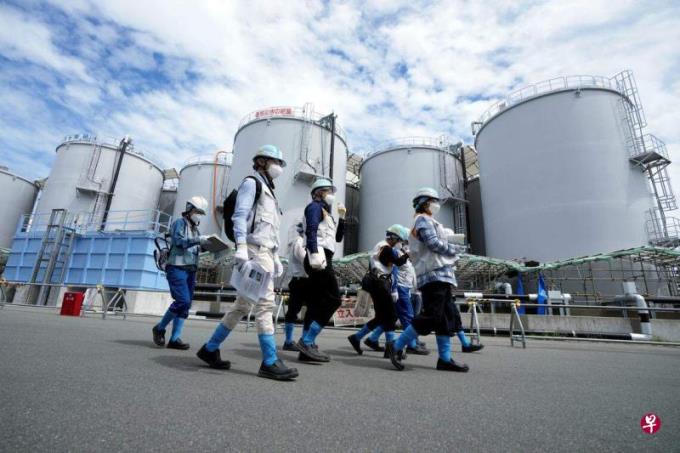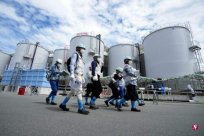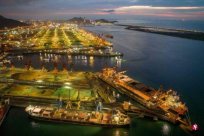
(Tokyo Composite Electric) The Ministry of Environment of Japan pointed out that the results of seawater analysis near the Fukushima first nuclear power plant show that the concentration of radioactive substances of all samples is lower than the lower limit value that the instrument can detect, showing the nuclear treatment water drainage sea "There is no adverse effect on people and the environment. "
After Japan's Thursday (August 24) began to discharge the Fukushima nuclear power plant nuclear treatment of water, the country's environmental department collected seawater samples at 11 places within about 40 kilometers in the nuclear power plant the next morning to detect radioactive substances (The concentration of tritium.
The Japan Environment Ministry announced the test results on Sunday (27th) that the seawater samples at 11 places did not touch the lower limit -that is, seven to eight to eight Beckler (BQ/L) per liter.The official also analyzed radioactive substances such as 铯 -137 (CAESIUM-137) of seawater samples, and the results were also lower than the lower limit.
The analysis results were announced every week to detect the official website of the water quality
The Ministry of Environment of Japan shows that at least three months, the official seawater quality is detected every week, and the analysis results are released on the official website.
The Minister of Environment of Japan, Nishimura, pointed out in the statement that the work will be carried out in a "highly objective, transparent and reliable" manner to avoid adverse effects on Japan's reputation.
Tokyo Electric Power Company, Fukushima Nuclear Power Station operator, also said that the latest test results have not changed significantly before.The results of the seawater sampling detection released by Tokyo Electricity on Friday (25th) showed that the concentration of the concentration in the seawater near the nuclear power plant was lower than the lower limit of 700 Bercler's lower limit per liter of Berchler.Drinking water radioactive substances stipulated by the World Health Organization is limited to 10,000 Berchlerk per liter.
Although Japan and some scientific organizations, including the International Atomic Energy Agency (IAEA), have said that these nuclear waste water is safe after treatment, and the residual radioactive substances in the water are also within the scope of the standard, but they still cause concerns and criticism from all parties.
The Fukushima First Nuclear Power Station began to discharge processing nuclear waste water into the Pacific Ocean last Thursday, causing strong protests in Japan and neighboring countries, including China and South Korea.Among them, China announced that the import of Japanese aquatic products was comprehensively suspended.
Japanese companies and groups frequently from Chinese harassment calls
People's dissatisfaction with Japan is still burning to ordinary people and enterprises.The Ministry of Foreign Affairs of Japan pointed out that since the launch of the nuclear treatment of water, Japanese companies and groups have continued to receive harassment calls from China.As a result, the Japanese government has urged Beijing to ensure the safety of Japanese residents in China. At the same time, the Chinese Embassy in Japan calls on the Chinese people to stay calm.
The Japanese Ministry of Foreign Affairs issued a statement on Saturday night that senior diplomats responsible for affairs in the Asia -Pacific region reported that they also faced similar harassment in Japanese companies or related units in China.As a result, Hubohang urged Beijing to "take appropriate measures to ensure the security of Japanese residents in China and the Japanese diplomacy in China."
In addition, the Japanese Embassy in China requires Japanese citizens in China and do not speak Japanese openly.
The netizen who was thrown on the stones and eggs at the Chinese school appeared to resist Japanese goods
According to Kyodo News, some Japanese schools in China have also been harassed. They have been thrown stones and eggs one after another. Some people call on the Internet to call the Japanese to protest and resist Japanese goods.One after another.
It is reported that the embassies and consulates in Japan in China have raised their alerts to prevent someone from protesting.




